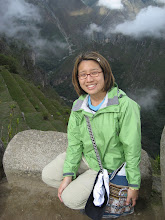
Today was thankfully much less eventful than yesterday. One of the nice things about living in a country for an extended period is the opportunity to have a more in-depth appreciation of the culture and history. At a population of 750 000, Guyana is the only English-speaking country in South America with a culture that has been more largely influenced by their Caribbean rather than Latin American neighbours. The country has changed hands between the French, Dutch, and finally the British. Here, Sir Walter Raleigh claimed that he found the famous lost city of gold, El Dorado.
In Amerindian, Guyana means “Land of Many Waters”; with its many tributaries including the Rupununi River, the Essequibo River is the third largest in South America. Unlike other regions of the Amazon rainforest, Guyana boasts a largely untouched natural environment, which has been minimally damaged by tourist activities. Guyana is known as the land of giants: the giant otter, anteater, armadillo, centipede, and of course the jaguar, one of the largest feline in the world and the national mascot.
When we visited a secondary school as part of our tour at Rock View, the children sang (see picture), “Living in Aranaputa in the Rupununi basin…we can be hungry….life can be hard.” Obviously, life in the rainforest can be unforgiving, and the song contrasted markedly with tranquil Cape Breton lullabies that we would sing in our Canadian secondary schools. Children as young as six years old walk to school by themselves and if they’re lucky, two or three might be able to simultaneously share a single bicycle for transportation.
Beside the school, there is also a small plant (see picture) producing peanut butter, a source of pride for those in the Rupununi. The peanut butter is exquisitely smooth and simply delicious. The children would eat this on cassava bread, which has a very thin crunchy texture, as their lunch. Despite these brief insights into Guyanese life, we must admit that the actual pulse of the country remains elusive to us.
In Amerindian, Guyana means “Land of Many Waters”; with its many tributaries including the Rupununi River, the Essequibo River is the third largest in South America. Unlike other regions of the Amazon rainforest, Guyana boasts a largely untouched natural environment, which has been minimally damaged by tourist activities. Guyana is known as the land of giants: the giant otter, anteater, armadillo, centipede, and of course the jaguar, one of the largest feline in the world and the national mascot.
When we visited a secondary school as part of our tour at Rock View, the children sang (see picture), “Living in Aranaputa in the Rupununi basin…we can be hungry….life can be hard.” Obviously, life in the rainforest can be unforgiving, and the song contrasted markedly with tranquil Cape Breton lullabies that we would sing in our Canadian secondary schools. Children as young as six years old walk to school by themselves and if they’re lucky, two or three might be able to simultaneously share a single bicycle for transportation.

Beside the school, there is also a small plant (see picture) producing peanut butter, a source of pride for those in the Rupununi. The peanut butter is exquisitely smooth and simply delicious. The children would eat this on cassava bread, which has a very thin crunchy texture, as their lunch. Despite these brief insights into Guyanese life, we must admit that the actual pulse of the country remains elusive to us.
